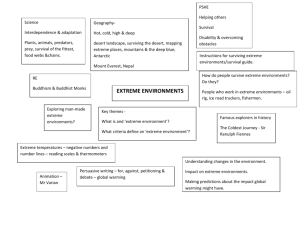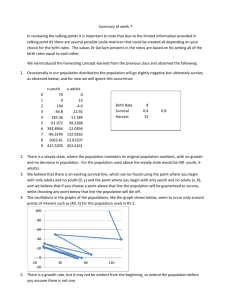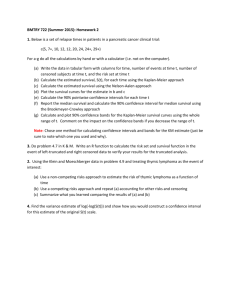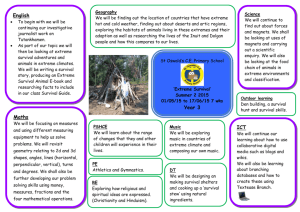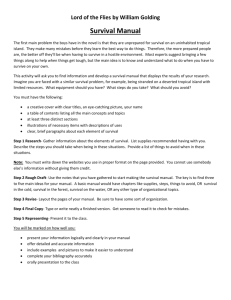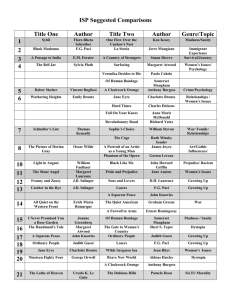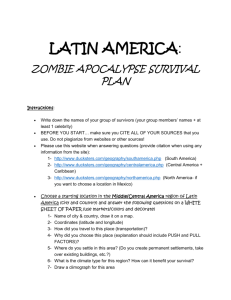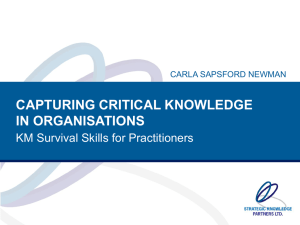Surviving Survival: The Art and Science of Resilience (1
advertisement
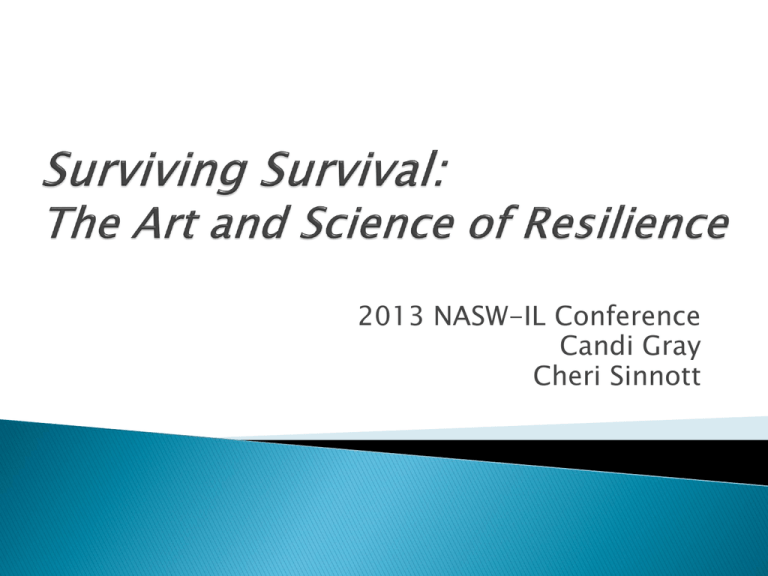
2013 NASW-IL Conference Candi Gray Cheri Sinnott Surviving Survival: the Art and Science of Resilience by Laurence Gonzales Personal characteristics Successful vs. ineffective strategies for surviving the survival piece of complex circumstances Goal - post trauma, clients do not develop Post Traumatic Stress Disorder Self-identify experiences with survival and successful strategies. Strategies that can be used with clients as interventions. Strategies to enhance a social worker’s capacity to be prepared for tragic events. Connections between the coping strategies for survival and Cognitive Behavioral Therapy. Ways to integrate survival skills into our lives and social work practice. Sublimation - do something to channel your energy and anxiety Altruism - do something for someone else Suppression - don't think about your trauma; distract yourself from it Anticipation - see the future clearly and prepare for it Humor - be able to laugh at yourself and your misfortune - one of the most healing abilities of all Projection - blame someone else Passive Aggression - respond with anger Dissociation - be in denial Acting Out - impulsive behavior Fantasy - take leave of reality Hypochondriasis - imagine you're sick all the time 1 - Perceive and believe 2 - Remain calm 3 - Realistic assessment of resources and predicament; set achievable goals 4 - Act on your plan 5 - Celebrate your success once you've taken action 6 - Count your blessings 7 - Play, have fun 8 - See the beauty 9 - Belief that you can influence events 10 - Surrender - let go of your fears and move forward 11 - Do whatever is necessary to make that move happen 12 - Never give up From Deep Survival by Laurence Gonzales Want it, need it, have it Be here now Be patient Be tough Get the small picture Put things in their place Work, work, work See one, do one, teach one Touch someone Be grateful Walk the walk Life is deep; shallow up Micro/Mezzo/Macro Ourselves Our clients Effective coping strategies and interventions Finding the Silver Lining Cognitive Behavioral Therapy Various settings – school social work, health care, mental health Continuum of Post Traumatic Stress Disorder - does it impact ability to function - coping skills Candi Gray cgray@cancercenter.org Cheri Sinnott cheris@isrc.us

